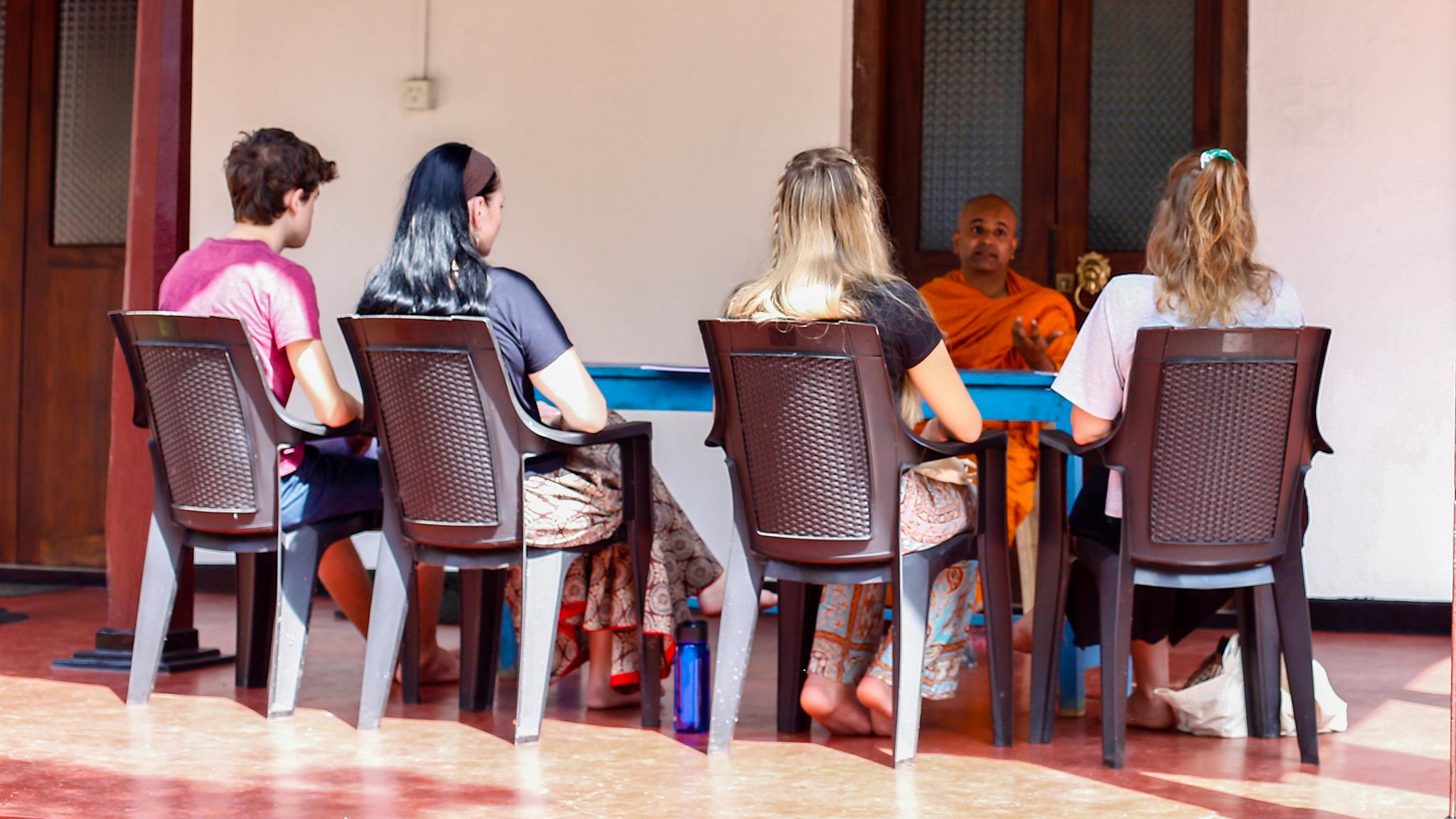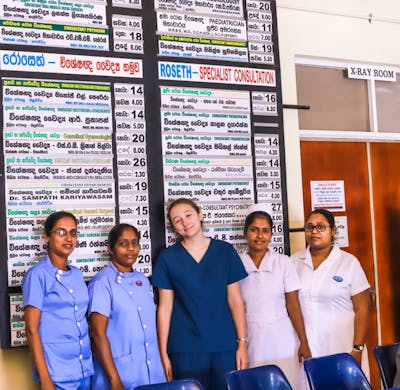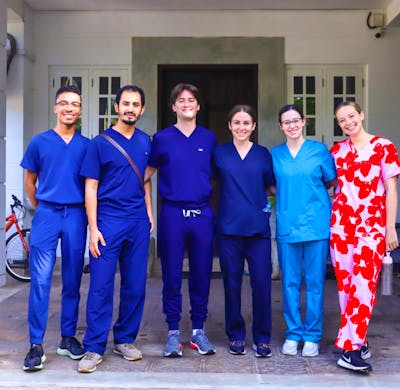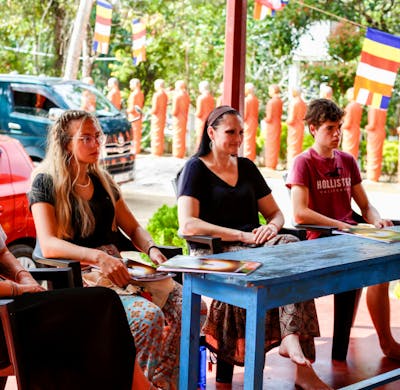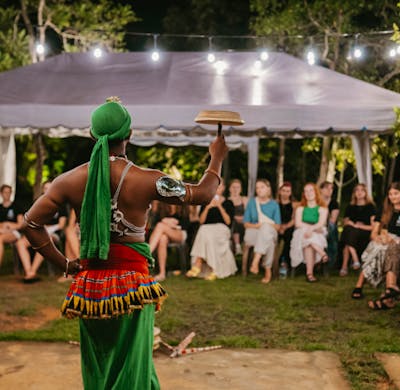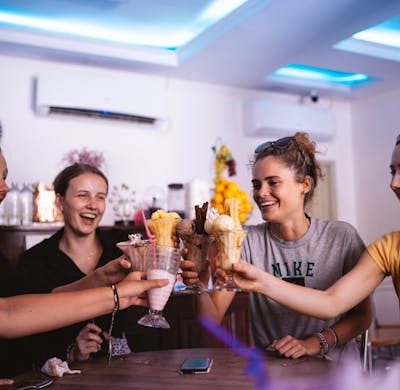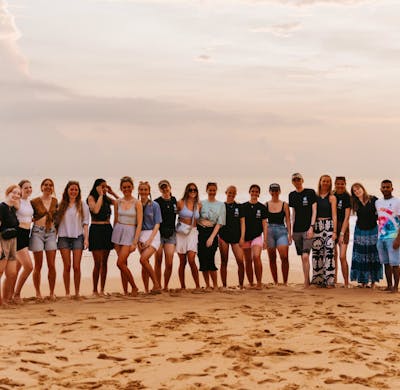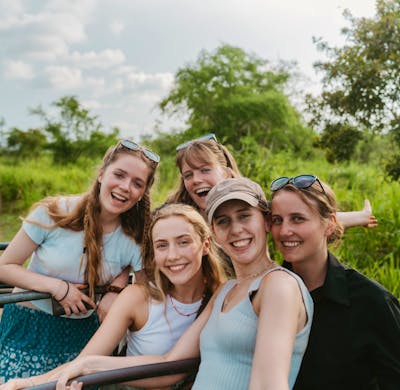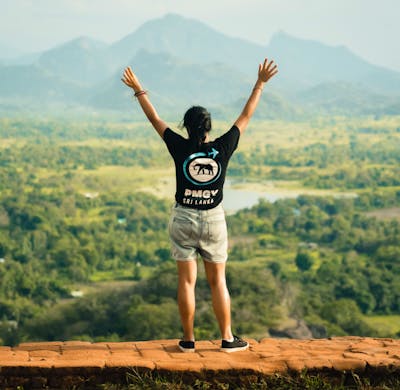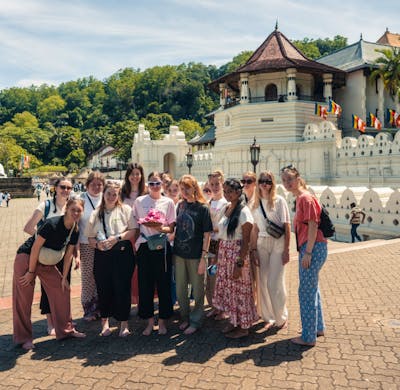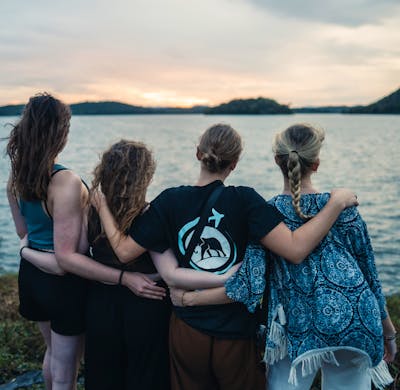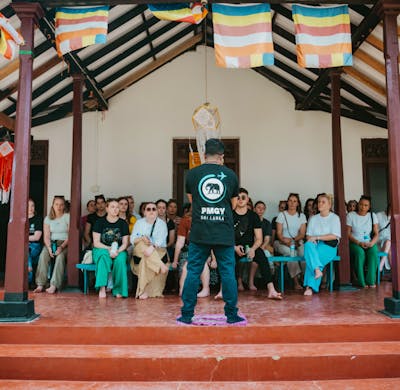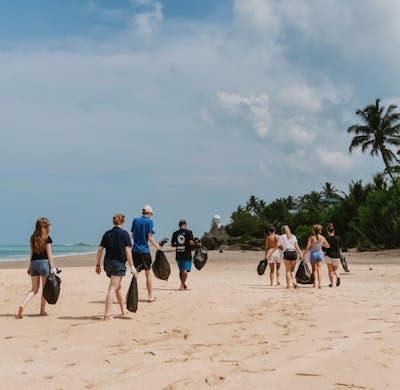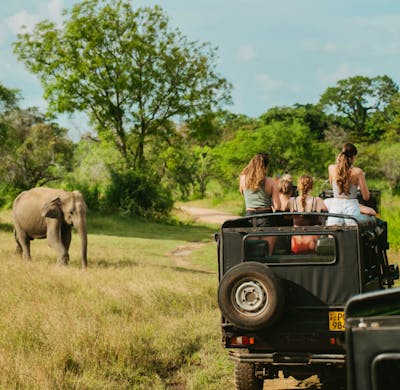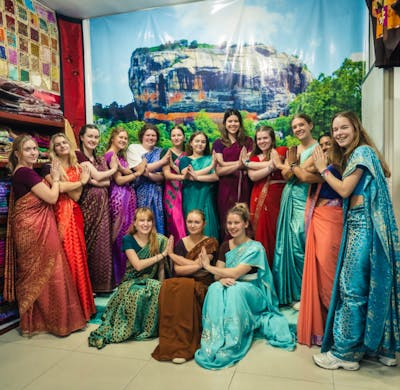As a mental health volunteer in Sri Lanka, you can gain psychology work experience and learn about mental health in the developing world. This program is designed for those currently studying in the field of psychology or mental health. Meanwhile, providing an opportunity to gain insight and awareness within a range of settings in the healthcare system. The mental health needs of Sri Lanka have continued to increase in recent decades. However, mental health services have struggled to respond to such developments.
Our mental health volunteering abroad program provides participants with the opportunity to gain a broad overview, understanding and insight into mental health care and needs within a different culture.
The Sri Lanka volunteer program is based mainly in the Galle District. This was one of the worst affected regions from the 2004 Boxing Day Tsunami and to this day today has left a lasting impact both physically and mentally on Sri Lankan people. Our mental health project in Sri Lanka is considered one of the best volunteer abroad programs.
Our psychology programme has been set up to provide participants with the opportunity to gain a broad overview, understanding and insight into mental health care and needs within a different culture. The programme is based in the Galle District which was one of the worst affected regions from the 2004 Boxing Day Tsunami and to this day today has left lasting impact both physically and mentally on Sri Lanka people.
The mental health & psychology program aims to provide you with an opportunity to work within a range of settings in a new environment and culture. The following placement opportunities are available on the assumption we receive the required paperwork from you at least 3 weeks before your program start date. Please note, this project is not available to high school leavers nor applicants from a non-psychology related background. Placement opportunities for mental health volunteers in Sri Lanka include -
Balapitiya Government Base Hospital - As a mental health volunteer in Sri Lanka, you will spend time shadowing and observing mental health doctors in a hospital setting. This will be during consultation periods with in-ward and out-ward patients at government hospital clinics. You may encounter various forms of mental health disorders and conditions.
Each mental health volunteer in Sri Lanka will usually spend time across two hospitals where the mental health consultant sets up their out-patient clinics. This is usually the local Balapatiya Government Hospital near Ambalangoda, plus another Galle District Hospital.
When in the hospital setting, the doctor will aim to translate and explain as much as possible to participants whilst the consultation with the patient is taking place. They will speak good English so should be able to debrief and receive questions from you accordingly. It is important for participants to be flexible in the environment they are in and appreciate that a doctor’s schedule is busy. Therefore, the doctor may not be able to translate and explain to you each patient consultation.
National Institute of Mental Health - In addition, participants will usually get the chance to spend time at the National Institute of Mental Health. This is the largest hospital for mental health in Sri Lanka.
Here participants receive a presentation around mental health in Sri Lanka and get a tour of all the in-patient services. For instance, you'll learn about the psychogeriatric, ECT and isolation units and how they administer therapies, drugs and injections. There is also a range of out-patient services that you will be able to visit as a mental health volunteer in Sri Lanka, such as day rehabilitation centres.
Generally speaking, the first line of treatment for mental health patients in services remains to be medication. It is a lot more available and accessible than other therapeutic medications such as creative therapies and meditations. As a consequence, in reality, these alternatives treatments are often not widely received by those with mental health needs.
National Council for Mental Health - Part of your placement will be at the National Council for Mental Health. This serves as a “half-way home” treatment centre to integrate those with mental illness back into society. Each mental health volunteer in Sri Lanka will be able to partake and observe their daily schedule of activities or consultations, depending on the available timetable.
Located close to Colombo, this is a weekly placement that is one of the highlights of the mental health experience. The NCMH is very much a forward-thinking framework, which is all about rehabilitation for the patients and providing a wide range of occupational therapies. Moreover, the long term goal is for patients at the home to return back into mainstream society without relapsing. The setting is mostly home to adults and has a team of nurses to support the day to day running and support at the halfway home.
Each volunteer in Sri Lanka will get a chance to interact with those based at the home, so you can ask them questions and learn about their experiences. In addition, you can provide hands-on support with occupational therapy, such as creative arts and learning, as well as structured daily exercise classes to encourage positive wellbeing.
Participants will also get the chance to have one on one time with the director at the NCMH. You can ask questions and learn more from the experts around mental health in Sri Lanka, as well as the stigmas attached.
Lectures, Seminars & Workshops - You will also get the opportunity to take part in a series of workshops relating to mental health in Sri Lanka. This may include sessions with local consultants who share their experiences on working within the Sri Lanka mental health system.
Firstly, you will learn about Ayurveda, which is an ancient medicine system rooted in the Indian subcontinent. Ayurveda consists of concepts and practices that promote the use of herbal compounds, special diets, and other unique natural health practices. The seminar will explain a different dynamic and perspective onto how patients are treated with regard to mental health and the traditional Sri Lankan medical system.
Every mental health volunteer in Sri Lanka will also be welcome to a lecture from a Buddhist monk. Here you will explore how Buddhists and Sri Lankan people are dealing with mental health problems. In addition, you may learn how core values, practices and beliefs are helping with this, such as meditation.
On an ad hoc basis, you may also be invited to attend additional mental health events and workshops. For example, visits to alcohol and drugs information centres and learning about the impact they can have on the wellbeing of Sri Lanka people. It is usually quite rare that these opportunities become available, but if they do our local team are on hand to provide such opportunities for you.
We are able to support students who would like to join our mental health & psychology program as part of an elective or university placement. Please contact a member of our team to discuss this in detail.
--
Other Things to Consider
University Students Only - Please note the mental health & psychology program in Sri Lanka is only available to those already studying a psychology/mental health-related degree at university and is not be available to those with no exposure or studying at levels beneath this (e.g. A-Levels). The project is available to graduates, but as this is a learning and insight experience graduates may not find this suitable to what they would be looking for from the placement.
Hands-On Involvement - As a mental health volunteer in Sri Lanka, your level of involvement at the project is dictated by a range of factors. First of all your medical experience (if any), duration of your program and willingness to get involved. The medical staff are accountable for you whilst you’re under their supervision, so it is completely up to them if you are permitted and want to get involved in hands-on procedures.
Generally speaking those with little or no medical experience assume a largely observational role. If you are studying a mental health-related degree, then you may have more opportunity to undertake some more basic hands-on involvement. However, to reiterate we can never guarantee or endorse hands-on experience should you choose to get hands-on, as the decision ultimately lies with the medical staff and their patients.
Trained Professionals - Please note this program is not suitable for trained professionals who are looking to practise overseas. This opportunity is only suitable for participants currently studying mental health or psychology and wishing to learn about a healthcare system overseas.

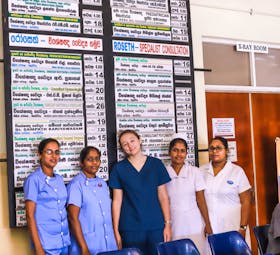
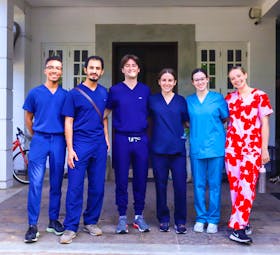
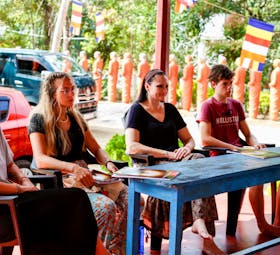
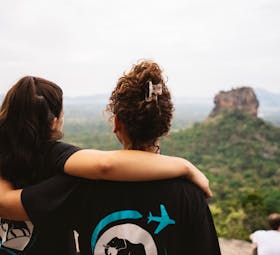
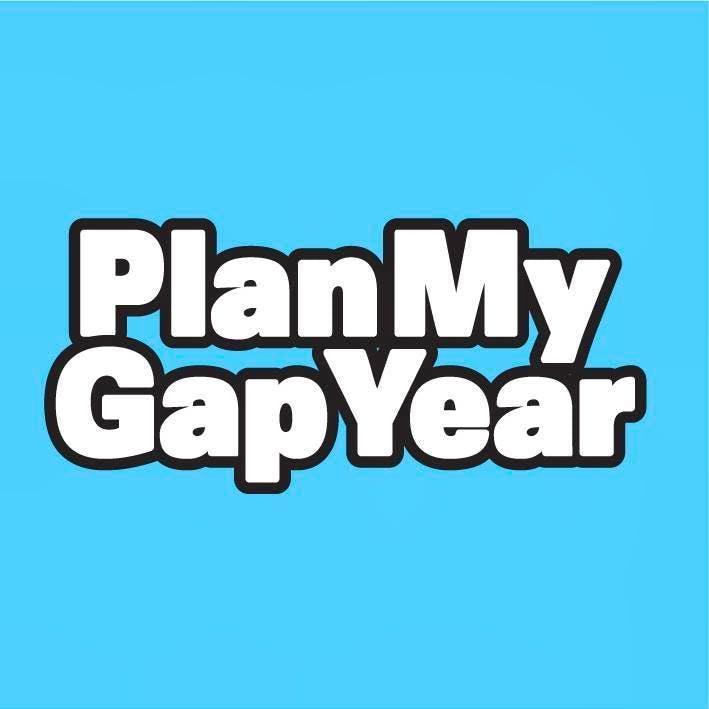
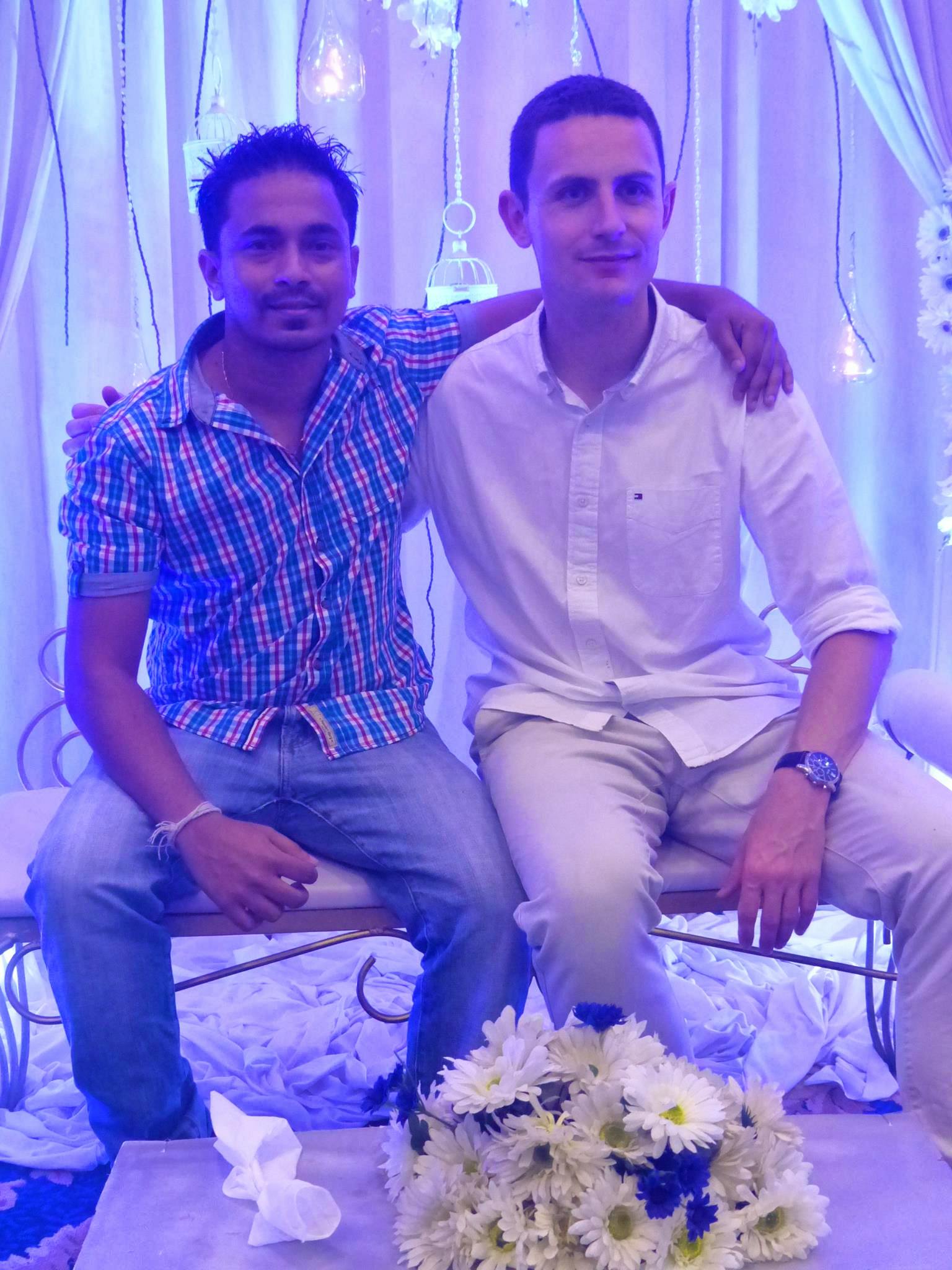
 4.8
4.8

